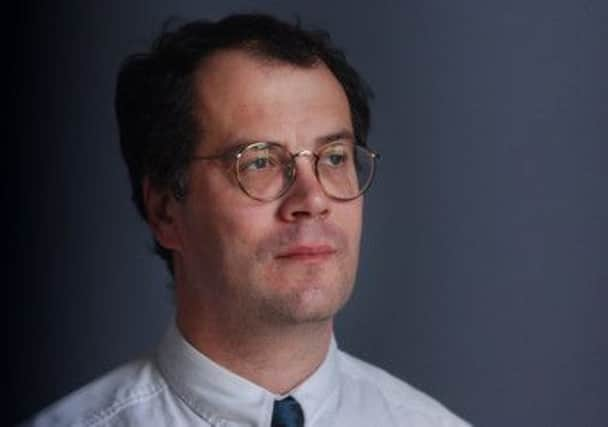Scottish independence: writers will be ‘foreign’


Hugh Andrew, managing director of Birlinn publishing house in Edinburgh, said Scottish writers faced being seen as “foreign” in the rest of the UK in the event of a Yes vote.
Mr Andrew said the industry in Scotland was already struggling due to a lack of proper financial support or strategic thinking from the Scottish Government or its flagship arts agency Creative Scotland.
Advertisement
Hide AdAdvertisement
Hide AdWriting on the website Think Scotland, he warned that an “artificial wall” would be erected between Scotland and the London-dominated book industry in the event of independence.
Mr Andrew – one of the most outspoken critics of Creative Scotland last year when it was facing an artistic rebellion – also warned that nationalism “represents the worst of all worlds for our writers and culture”.
According to trade body Publishing Scotland, about 1,500 people are believed to be employed in the industry in Scotland, with more than 100 companies in total, from large firms like HarperCollins to sole traders.
Scotland’s publishers are thought to be responsible for about 3,000 titles a year, with the sales turnover currently worth around £343 million.
Mr Andrew said the book market in Scotland was largely homogenous with England – with only around one in 19 book sales north of the border distinctively “Scottish”.
He said: “This does not indicate either a distinctive market or indeed a terribly strong or deep-rooted sense of ‘Scottishness’.
“The situation is further complicated when one realises how much of the ‘Scottish’ side of publishing is driven not by Scots, but by the tourist industry.
“Ireland has a much more ‘protected’ book industry in that its retail sector is still largely in Irish hands and its publishing sector is much larger.
Advertisement
Hide AdAdvertisement
Hide Ad“Irish writers do of course achieve breakthroughs in the wider English language market, but far fewer of them.
“They are seen in the UK as foreign writers in a way Scots are not and the hurdles to publication in London are higher.”
Mr Andrew added: “How can we achieve a vibrant Scottish publishing industry within a UK open market?
“Well, it is certainly not the SNP solution. Independence represents the closing off, a la Ireland, for the opportunities which a single market represents for Scottish writers and publishers.
“Nationalism thus represents the worst of all worlds for our writers and culture in damaging its access to a larger market through erecting an artificial wall while systemically crippling the capacity of its indigenous industry to leap that wall.”
However, author Alan Bissett, a leading member of National Collective, a pro-independence campaign group set up by artists, said: “For Hugh to say that the Scottish Government are not interested in culture is rather strange, considering Fiona Hyslop’s magnificent speech this year ensuring the protection of the Scottish arts sector, which one might contrast with Westminster’s destruction of the arts down south.
“Publishing is indeed struggling in Scotland, but let’s remind ourselves that this happened on the Union’s watch.
“I respect Hugh Andrew, but I disagree with him on this issue, and I think most writers will.”
Advertisement
Hide AdAdvertisement
Hide AdA spokesman for Scottish culture secretary Fiona Hyslop said: “Hugh Andrew is entitled to his political opinion and has made similar points before.
“It is a position in contrast to the others from the world of literature and the arts which is strongly in support of an independent Scotland.”
A spokesman for Scottish culture secretary Fiona Hyslop said: “Hugh Andrew is entitled to his political opinion and has made similar points before.
“It is a position in contrast to the others from the world of literature and the arts which is strongly in support of an independent Scotland.”